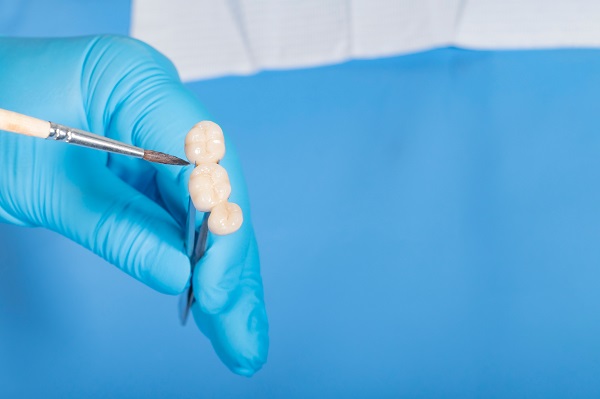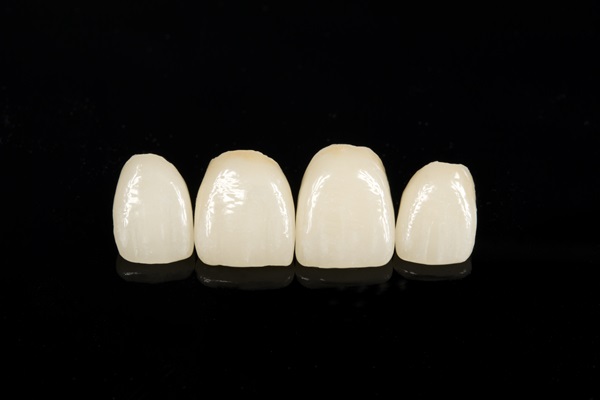Who Makes a Good Candidate for Dental Bridges?

Dental bridges are a method of permanently replacing missing teeth. Like other restoration options, they have both advantages and disadvantages. They are a common and fairly popular option.
Whether you are a candidate for bridges or not depends on your individual circumstances. Your dentist can tell you for sure whether a bridge is an option for you, but if there are contraindications that make you ineligible, you may be able to determine this before discussing the matter with your dentist.
What are dental bridges?
A bridge is a dental prosthesis used to replace one or multiple missing teeth. It anchors to one or two healthy teeth on either side of the gap to hold it in place so you can bite and chew as normal.
There are several different materials from which a dental bridge can be made. Metal bridges are stronger but do not match the appearance of the other teeth. They are usually placed in the back of the mouth where most of the chewing takes place and where the teeth are less visible. There are also dental bridges made of tooth-colored materials such as porcelain. Bridges made of these materials are likely to be used to replace one or more front teeth.
There are several different types of dental bridges available. The most common is the traditional fixed bridge, which can be placed almost anywhere in the mouth. Two abutment teeth on either side of the gap are prepared and fitted with crowns to hold the prosthetic, also known as the pontic, in place.
A Maryland dental bridge is an alternative that attaches to the back of the abutment teeth by metal wings that are bonded in place. It is not as strong as a traditional fixed bridge but it does not require alteration of the abutment teeth. Therefore, it may be an appropriate treatment for the front of the mouth. Another type is a cantilever bridge that is supported by only one abutment tooth, which may be necessary if the gap only has teeth to one side of it.
What makes you eligible for a dental bridge?
Dental bridges are not appropriate for every patient. Here are some factors that may affect your eligibility one way or the other.
Missing teeth
It may seem obvious to say that you have to be missing some teeth to take advantage of a tooth replacement option such as a dental bridge. A bridge can replace as few as one tooth and as many as four.
However, it is not enough that the teeth be missing. You have to be missing teeth all in a row so that the bridge can fill in the entire gap. If you are missing multiple teeth in different parts of your mouth, you either are not a candidate for bridges or may need more than one.
Good oral health
To be a good candidate for a dental bridge, your oral health needs to be good apart from the missing teeth. That means no tooth decay, no gum disease, and no other dental issues that need to be addressed before the bridgework can be done.
Good overall health
In addition to good oral health, you also need to be in good health generally to be a candidate for a dental bridge. Infections or severe underlying medical conditions could affect your eligibility by increasing the risk of complications from the procedure.
Strong, healthy abutment teeth
To be eligible for a bridge, the teeth on either side of the gap have to be strong enough to serve as abutments. Otherwise, the pressure of chewing could damage the abutment teeth, which could result in the failure of the entire bridge. To prevent this from happening, the abutment teeth have to be strong, healthy, and intact prior to the procedure to place the bridge. If they are not, a bridge might not be a treatment option for you.
Diligent oral hygiene
Receiving a bridge does not excuse you from oral hygiene. In fact, it becomes even more important when you have a bridge. To prevent the bridge from failing, you have to protect the abutment teeth from decay. In addition to daily brushing and flossing, this also means cleaning underneath the bridge in the gap between the pontic and the gum. Your dentist may be able to provide special cleaning tools for this task, or you may be able to purchase them from a drugstore.
Conclusion
Dental bridges are popular with patients for replacing missing teeth. However, certain circumstances may prevent you from being a candidate for the treatment. If that is the case, there may be other options available.
Request an appointment here: https://easthanoverfamilydental.com or call East Hanover Family Dental at (973) 302-2078 for an appointment in our East Hanover office.
Check out what others are saying about our dental services on Yelp: Dental Bridges in East Hanover, NJ.
Related Posts
You may have heard of dental bridges as a type of restorative treatment at the dentist’s office. It is one of the various options the dentist can explore to restore smiles and the full function of the mouth. As you consider this treatment along with other possible solutions, it is helpful to understand how bridges…
You should always take care of your teeth, but it becomes especially important when you have dental bridges. Here are four proven tips to help maintain your dental bridges at home so they can last longer. These cleaning tips will help prevent cavities under your dental bridge and prevent extra unexpected trips to the dentist.Every…
A dental bridge is one of the options available for replacing one or more missing teeth. Bridgework is usually provided as a fixed solution that is not detachable, unlike dentures. Bridges work to fill the gap left by missing teeth and restore full oral functions as well as the smile. Continue reading to discover some…
Dentists commonly recommend dental crowns to protect teeth that have become structurally damaged due to a variety of problems, including severe cavities, infection, and other forms of tooth decay. The application of dental crowns is one of the most widespread dental procedures, so it is important for patients to understand how long they should be…


